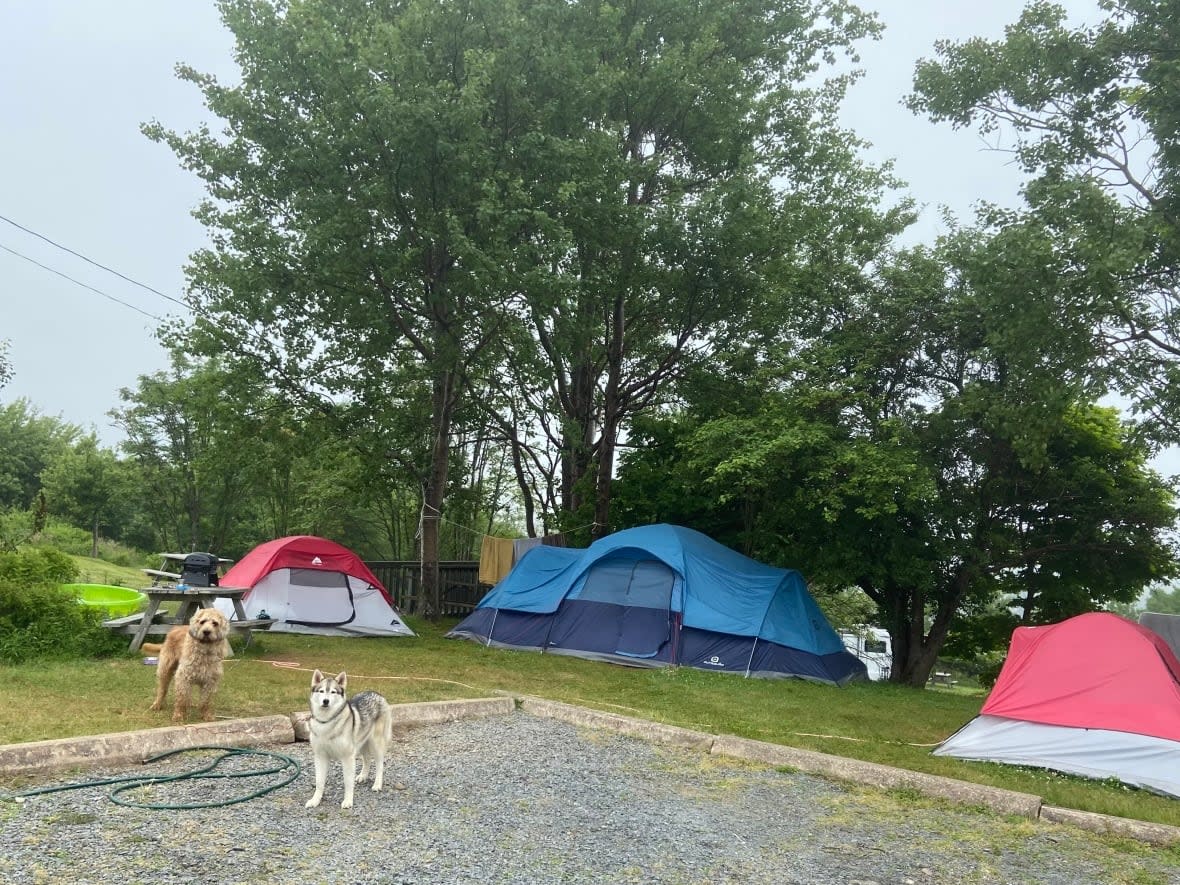Family with 5 kids living in tents amid 'crisis' in South Shore housing

A housing development coordinator in Lunenburg County, N.S., says the housing crisis has reached unprecedented levels, with families living in campgrounds in the summer, and seniors burning furniture for warmth in the winter.
"We're in a crisis," said Lisa Ryan, executive director of the South Shore Open Doors Association. "There are no vacancies and rental rates have increased so significantly that most folks who work and live here are priced out of housing."
She said an influx of new residents, an increase in vacation homes and short-term rentals, and skyrocketing inflation are causing the situation to deteriorate quickly.
"It has never been this bad before."
The South Shore Open Doors Association is located in Bridgewater, N.S., but serves the region. And though Ryan has learned there are few or no rental vacancies in the area, there is no official data to back it up.
Gaps in data
The Canada Mortgage Housing Corporation has inconsistent primary rental market data for some of the South Shore, and no data for the rest of the area. In Lunenburg County, there is no data on vacancy rate and average rent.
David Harris, a representative for the CMHC, told CBC News the areas are not accurately represented in its annual Rental Market Survey or Rural Rental Market Survey.
"In some markets where the rental universes are relatively small, response rates can result in reliability and confidentiality challenges," Harris said. "CMHC does not publish a statistic if its reliability is too low or if publication of a statistic would violate confidentiality rules."
The provincial department of Municipal Affairs and Housing said they do not collect this information.
More than 25 children homeless
After just a month of tracking who comes through the door needing help, Ryan said the results are troubling.
"We're seeing a lot of individuals who have never experienced this before," she said. "That is alarming because some of the folks that are coming through our doors are not working minimum wage jobs and are not on income assistance, and even they can't afford housing."
Ryan said the one month of data found 25 children experiencing homelessness in Lunenburg County. She said the true number is probably much higher.

Ryan said a majority of the people seeking help have been served an eviction notice. Since rentals are scarce and prices are rising with inflation, but wages, pensions and social assistance are stagnant, it's creating a perfect storm.
Campground sheltering
Ryan said she knows of multiple families with children who are sheltering in campgrounds.
Jessica Smith and her family are one of them.
Smith has been looking for a new home for her family of seven since their house caught fire last September. An eight-month rental gave them some relief, but Smith, her husband and their five children, aged five to 15, are now homeless and no closer to finding a place to live.

"There's been nothing available and if something is available, then it's either way out of our price range or our family's just too big," Smith told CBC's Mainstreet on Monday.
"We never thought that we would be in a situation that we would have to be homeless with our children," Smith said, adding that she and her husband both work full-time jobs.
"We provide very well for our family but, just at the moment, we can't provide a home for them."
Rural areas overlooked
Ryan said the lack of data in rural areas allows them to be overlooked by the province. She said the federal or provincial government could gather better data.
"We need the province to listen to us. We need to be studied. We need to have just as much access to funding and resources as urban centres do."
She said her organization is hoping to also come up with solutions as a community and wants local landlords to contact them to offer housing options, and the association can provide some funding.
MORE TOP STORIES

 Yahoo Movies
Yahoo Movies 
